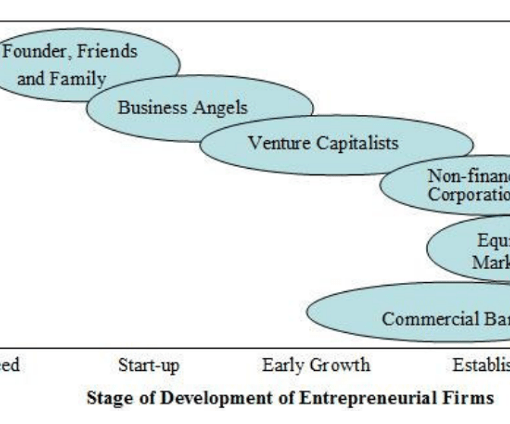Understanding The Angel Investment Landscape
“If you need external capital to get your start-up off the ground or to the next stage,
attracting an angel investor could be your best bet.”
Every startup needs to find an external source of funding to grow its enterprise. One of the
most common ways to fund your startup is through an angel investor. They are not like banks
or any ventures. They are people looking to put their time and money into early-stage
companies. Angel investors are great advisors, who may offer quick ways to get your startup
connected with the rest of the world.
But Who are These Investors?
Angel Investors are individuals who make use of their personal disposable finance by
providing funding to early-stage companies in exchange for ownership equity or convenient
debt. They may provide a one-time investment or give ongoing capital to assist the company
get through the challenging early stages.
Compared to the other lenders, angel investors offer better terms as they typically invest in the
entrepreneur starting a business rather than the viability of the business. Angel investors are
more concerned with assisting businesses in taking their first steps than with the potential
return from the company.
In most cases, they take an active part in the management of the new business in order to
protect their investment and help the owner build a prosperous business. Therefore,
many angel investors also seek to bring not only finance but also personal contacts and
experience which will help startups to succeed.
An angel investor moves beyond cash offering and creates a mark in the entrepreneur’s career
by giving the startup a firm ground and the ability to start.
What is Angel Investing?
Angel Investing is a type of private equity investing in which high net worth investors
attempt to earn higher returns by taking on more risk compared with investing in the public
markets. By supporting entrepreneurs and promoting innovation, angel investing makes a
substantial contribution to the UK economy.
Angel investors usually fund a startup in its early stages. These companies may not even have
clients or generate any revenue — they may merely have a good business strategy, a beta test,
or a minimum viable product.
Capital from angel investors is frequently used for research and development, to help the
company formulate its product and service offering, to design a business strategy, or identify
its target market. In exchange for the capital investment, the startup usually grants the angel
investor a certain number of shares or the ability to acquire shares later.
Depending on the nature of the firm, the average angel investment might range from a few
thousand to a few million pounds. Also, they may provide follow-on money
in subsequent funding rounds.
Technology, healthcare, software, biotech, and energy are the leading sectors in terms of
angel investment.
What Do Angel Investors Look For?
Investing at an early stage may carry a high level of risk. To justify the risk, angel investors
must see that there is potential for high returns in the future. Every investor has their own
specific investment criteria, but here are a few things they usually look for in a business:
- An ambitious founding team with the necessary skills and experience to bring a
business idea to fruition - A product/service that solves a real problem
- A substantial market opportunity with tremendous growth potential
- A well-thought-out business plan that outlines how you intend to grow the company,
how much finance you need and how you will use it to achieve your objectives.
5 Tips for Raising Money from Angel Investors
1. Plan to contact hundreds of investors.
You will end up only having serious conversations with a few of them. Also, make sure this
list is targeted and they invest in your sector
2. Build relationships starting yesterday.
If an investor is going to give you a significant amount of money, they must trust you.
Whether they invest in your first idea or not, keep building those relationships. They may just
want to get to know you better, and you never know where a solid foundation might take you.
3. Use available platforms.
There are many platforms that can connect entrepreneurs with potential angel investors. By
accessing angel investor communities and networks, you can save a lot of time and research
to find investors who might be interested.
4. Provide as much information as possible.
While you might not have the amount of data that you would like when pitching investors, it
is important to gather as much information as you possibly can. Business angels know that
they are taking a huge risks, but they hope that they will still calculate this risk as accurately
as they can.
5. Practice your pitch.
You should make your proposals quick, concise, and engaging. That requires practice. Ask
someone who is not related to you or your business to give feedback about your presentation.
NorthInvest has resources targeted to helping startups in identifying potential financing
partners at all stages of investment. Check them out here.
Image citation: https://www.shutterstock.com/





